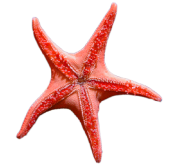ASLC Admits Orphaned Otter Pup to Wildlife Response Program July 1, 2025
Orphaned Otter Pup and Two Seal Pups Join Growing Patient List at Alaska’s Only Permanent Marine Mammal Rehab Facility
The Alaska SeaLife Center (ASLC) has admitted three new patients in just four days, including an orphaned male sea otter pup from Homer on June 23. In addition, two orphaned harbor seal pups were admitted — a harbor seal pup from Nikiski on June 20, followed by another harbor seal pup from Juneau on June 23. The pup from Nikiski is currently receiving veterinary treatment, and the pup from Juneau, the smallest and most underweight patient admitted so far this season, did not make it despite intensive care efforts. Including the most recent admits, there are now 12 animals in rehabilitative care at the ASLC, with many still in critical condition and receiving life-saving veterinary care.
“We’ve had busy seasons before, but this is a notable number of admits early on in the season,” said Jane Belovarac, ASLC Wildlife Response Curator and Licensed Veterinary Technician. “With harbor seal pupping season continuing through mid-July, we’re staying prepared. We don’t yet know what the coming weeks will bring.”
As Alaska’s only permanent marine mammal rehabilitation facility, the ASLC plays a vital role in responding to orphaned and injured marine animals from across the state’s vast and remote coastlines. Every case requires coordination, expertise, and long-term commitment from the ASLC’s small but dedicated team. One of the most recent examples of that commitment came just days ago, when a young sea otter pup was found stranded near Homer, Alaska. A community member spotted the pup alone on a beach in Homer and called ASLC’s 24-hour Stranded Marine Animal Hotline. The pup was found unusually far from the water during low tide, and his mother was nowhere in sight. After hours alone, birds began to approach the vulnerable pup, and the team knew they needed to act. With authorization from the U.S. Fish and Wildlife Service, the ASLC Wildlife Response Team coordinated the pup’s safe transport to Seward for immediate care.
In their earliest weeks of life, sea otter pups are entirely dependent on their mothers for survival. Mothers provide near-constant care, including feeding, grooming, and maintaining the pup’s coat to ensure it stays clean and waterproof, which is critical for staying warm and buoyant. When a pup is orphaned, these responsibilities fall to the ASLC’s Wildlife Response Team, which is currently providing round-the-clock care to give the recently admitted pup the strongest chance at survival.
“We believe this pup is about two weeks old, and is now under 24/7 care and showing encouraging signs,” said Jane Belovarac, Wildlife Response Curator at ASLC. “He’s alert, taking the bottle well, and has already started practicing holding his breath while in the water, which is a great early milestone. His temperature and glucose levels are stable. As his body adjusts to drinking formula, we are watching him closely for signs of constipation, which is always a challenge for pups transitioning to new food.”
This pup joins another female sea otter pup rescued from Homer earlier this month, who continues to make steady progress. The female pup has now been given the name Un’a, which means “that out in the open water” in the language of the Alutiiq/Sugpiaq people. It’s a fitting name, they say, for a special pup who has shown strong resilience in her recovery.
Un’a remains under close observation for a front limb injury that is slow to heal. While obvious on radiographs, it does not appear to bother her, and she is using the limb normally. Her energy levels are improving, and she frequently engages with enrichment toys, dives deep in her pool, and eats solid foods — all positive signs that she’s meeting milestones in her development.
For updates on all 12 of the patients currently admitted, follow the Alaska SeaLife Center on Instagram and Facebook at @AlaskaSeaLifeCenter. Our team is busy providing top-notch care to patients, but we’ll share updates as often as we can.
Call First! If you encounter a stranded or injured marine animal in Alaska, contact ASLC’s 24-hour Stranded Marine Animal Hotline at 1-888-774-SEAL(7325). Do not approach or attempt to move the animal.
The Alaska SeaLife Center’s Wildlife Response Program can only provide care for stranded and injured marine animals with help from corporate sponsors and individual donors. Supporters can help provide vital care for marine animals in need by donating at www.alaskasealife.org/donate.
The Center acknowledges the ongoing generous support of the Wildlife Response Program from supporters like ConocoPhillips Alaska, Marathon Petroleum Corporation, PetZoo, Partners 4 Wildlife, Matson, GCI, and a number of individual donors, funds, and foundations such as Stanley J Williams Fund, Mesara Family Foundation, M. E. Webber Foundation, The Theresa Bannister Fund, and the NC Giving Fund.




